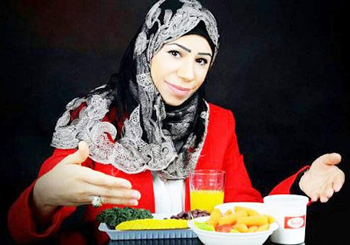 Dammam, Jul 17: The best time to exercise in Ramadan is an hour before breaking the fast or two to three hours after it for 30 minutes, says a local expert.
Dammam, Jul 17: The best time to exercise in Ramadan is an hour before breaking the fast or two to three hours after it for 30 minutes, says a local expert.
Raida Al-Habib, a therapeutic and physical nutritionist, said that healthy eating at night and in the morning was also important.
“Each meal should have a variety of small amounts of food such as cooked vegetables, the main dish and fruits. Fried food and sweets should be avoided as much as possible. People can ask a dietitian for help to organize a program for fasting.”
Al-Habib stressed that people should avoid junk food, fats, sweets, sugary drinks, and sodium-rich meals. “If a fasting person is tired and sluggish during the day, it means that there was an imbalance between the iftar and suhoor meals, which could be overeating on food full of fats, sugar and sodium with a low intake of water. All of these factors contribute to a sense of fullness, fatigue, discomfort and thirst the next day,” Al-Habib said.
Al-Habib said people of all ages should exercise throughout the year, not only in Ramadan. They should make exercise part of their lives because it is beneficial for the body.
“People need to devote at least half an hour to exercise a day instead of watching television or their computers for many hours.”
“Ramadan is a challenge for everyone wishing to exercise. They need to make radical changes to their diet and the time they go to gym. These changes help to make exercise beneficial rather than harmful,” Al-Habib said.
People should also be aware of their water and liquid intake during Ramadan especially considering the high temperatures. “People in Ramadan need to manage their time and rearrange their priorities so that they can find a balance in terms of their exercise, and religious and social duties.”





Comments
Add new comment